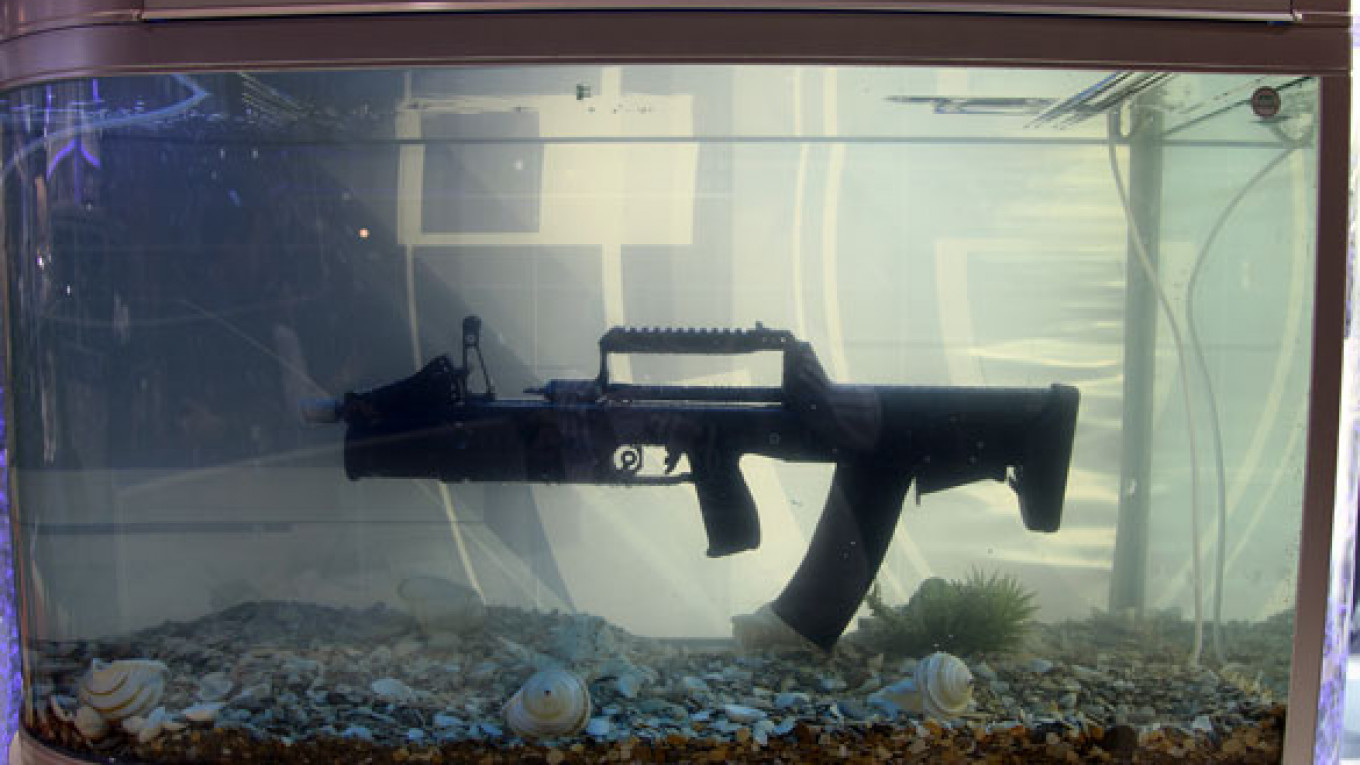Russia, Asia and the Middle East are fueling a global upswing in defense expenditure, even as the member nations of the NATO alliance continue to cut their military budgets, according to international consultancy IHS Jane's annual review, released Monday.
But while other countries from list of top military spenders also allocate significant finances to support healthcare, education and social programs, Russia's budget, the figures suggest, is primarily defense-oriented.
One indicator of where a government's priorities lie is the rate at which a particular share of the budget is growing.
"No other part of the budget is growing as fast as military expenditure. It is a clear priority," said Igor Nikolayev, partner at FBK audit and consulting company
Russia's defense spending is set to rise by more than 44 percent over the next three years. The country's adopted military strategy, which funnels cash into modernizing weaponry and equipment, envisages that defense spending will escalate from about $68 billion in 2013 to just more than $98 billion in 2016.
"This plan has already propelled Russia to 3rd place among the world's largest defense spenders," said Craig Caffrey, senior analyst at IHS Jane's aerospace, defense and security division. "The rapid increase in spending means that the defense budget will grow from 15.7 percent of federal expenditure in 2013 to 20.6 percent by 2016."
In this regard Russia is catching up with the U.S., which remains the world leader in defense expenditure. According to U.S. government figures, the U.S. will allocate about 21 percent of its annual budget to the military in 2014. However, a quarter of the country's budget will be spent on health care and another 24 percent will go to paying out pensions.
Russia spends more than 28 percent of its state budget on various social support programs, including pensions. But just more than 3 percent of all government spending goes to fund health care, and about the same share is given to education.
China, whose defense budget has seen double-digit growth in recent years, is now the world's second biggest spender on the military.
By 2015, China is expected to channel more than $159 billion into defense — more than Britain, France and Germany combined. At the same time, defense expenditure constitutes just under 6 percent of the country's budget. It spends three times more on education and twice as much on public services.
However, different governments spend various proportions of their nation's wealth. "If you look not at the share of the budget spent on military but at the share of gross domestic product, you would see that Russia spends less than 2 percent of its GDP on defense, while in Europe, the U.S. or China this figure is much higher," said Konstantin Sivkov, first vice president of the Academy of Geopolitical Problems and former senior captain in the Russian navy.
Sivkov also said 20 percent of the annual budget may seem like a large portion, but Russia had been lagging behind the West in military spending for at least for the last two decades.
Not all observers are so sanguine. Russia is a big country and is doomed to spend a lot on the military but the rate at which this expenditure is growing is alarming, said Nikolayev.
"What are they doing, preparing for war?" he asked.
Russia should prepare its forces to face the growing challenges around the world, Sivkov said.
"Almost every year another conflict is started, with the involvement by the U.S. and NATO forces … Also, China — though an ally — is rapidly modernizing its forces. This is an issue Russia needs to address adequately," Sivkov said.
As the share of global military spending represented by the West continues to decrease over the near-term, the center of gravity of defense expenditure is expected to maintain its shift south and east in 2014, following the geographical trend of global economic expansion, IHS Jane's analysts said.
"Russia, Asia and the Middle East will provide the impetus behind the growth in global military spending expected this year and will drive the recovery projected from 2016 onwards," said Paul Burton, director at the company's aerospace, defense and security division.
Contact the author at [email protected]
A Message from The Moscow Times:
Dear readers,
We are facing unprecedented challenges. Russia's Prosecutor General's Office has designated The Moscow Times as an "undesirable" organization, criminalizing our work and putting our staff at risk of prosecution. This follows our earlier unjust labeling as a "foreign agent."
These actions are direct attempts to silence independent journalism in Russia. The authorities claim our work "discredits the decisions of the Russian leadership." We see things differently: we strive to provide accurate, unbiased reporting on Russia.
We, the journalists of The Moscow Times, refuse to be silenced. But to continue our work, we need your help.
Your support, no matter how small, makes a world of difference. If you can, please support us monthly starting from just $2. It's quick to set up, and every contribution makes a significant impact.
By supporting The Moscow Times, you're defending open, independent journalism in the face of repression. Thank you for standing with us.
Remind me later.






